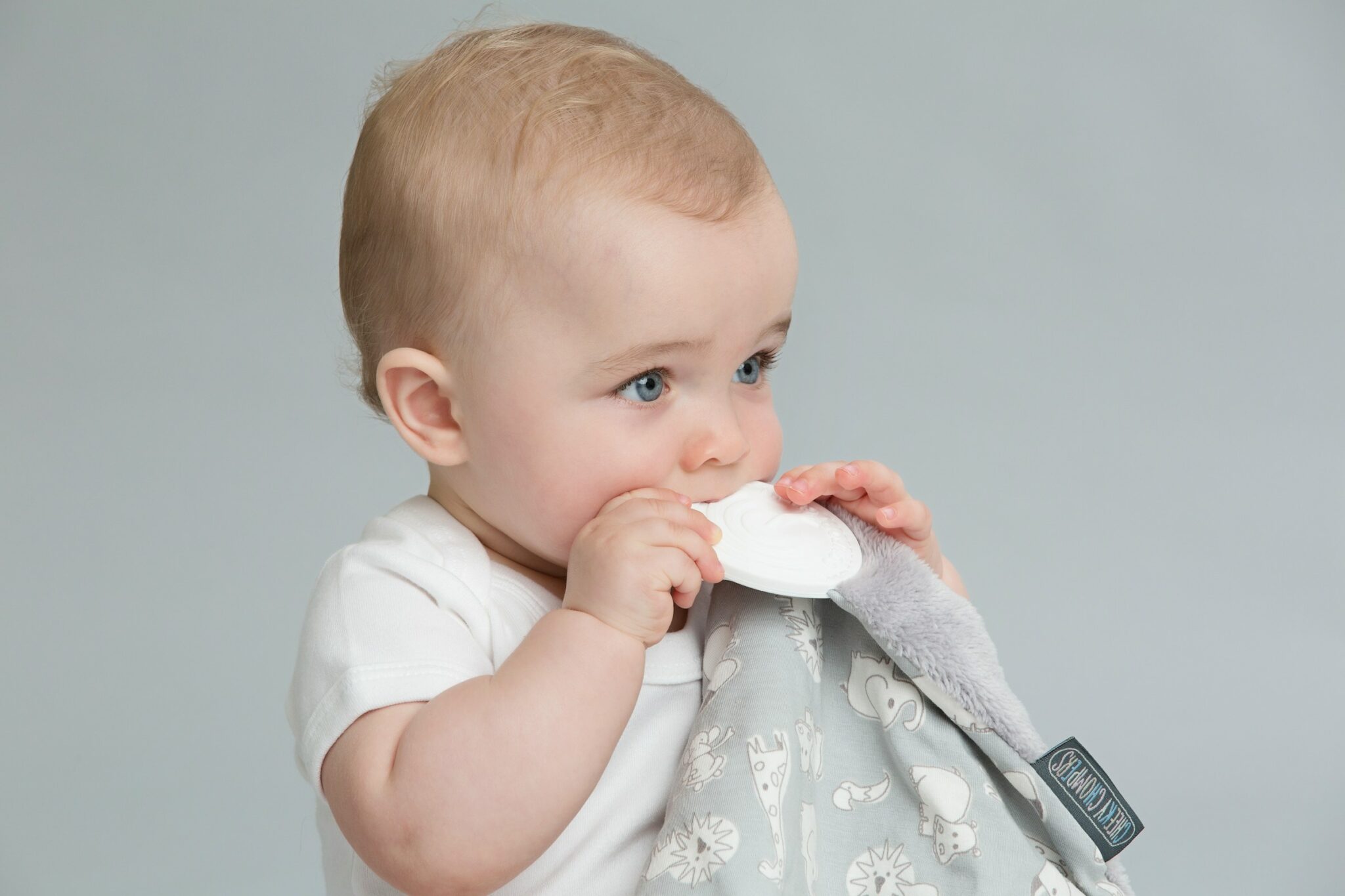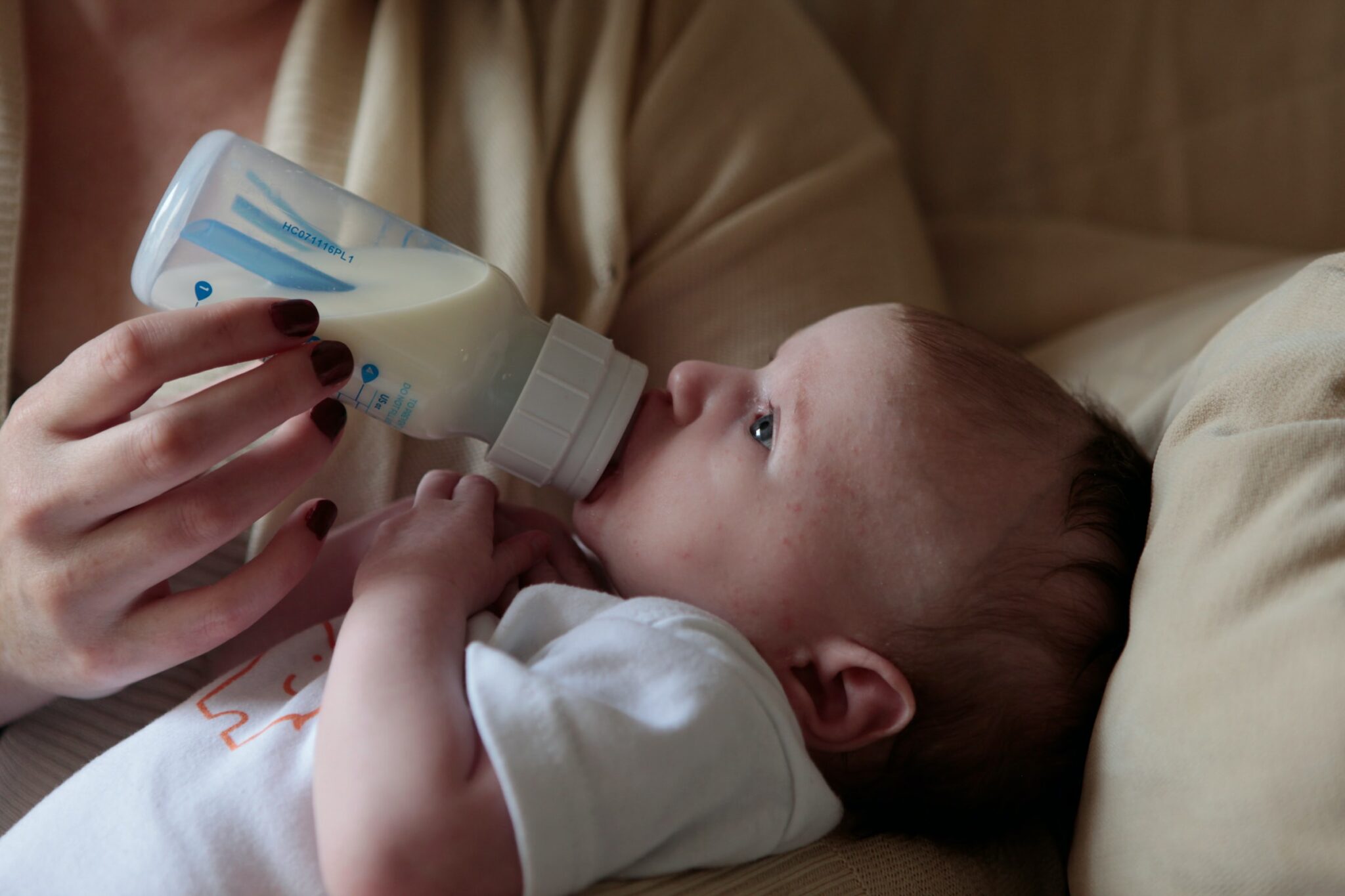When you are watching your little one’s new teeth come in, a mix of feelings may arise. You are excited to see those pearly whites come through, but you may also feel distraught about the pain that your child is experiencing. Fortunately, there are several easy remedies to alleviate discomfort, including teething toys. While these toys are generally safe, you should be careful to choose the right ones and to use them appropriately.
At Smiles Dentistry for Kids in Overland Park, KS, we can provide tips and tricks to make teething easier for you and your child. We are happy to recommend some appropriate teething toys, as well as other methods of pain relief. And once your child’s teeth do come in, we can provide outstanding care to keep them strong and healthy.
For more guidance or to schedule an appointment, contact our office today.
How do teething toys help?
When a tooth is coming in, it puts pressure on the gums from underneath. By chewing on a teether, a baby can put a counter pressure on the area, essentially giving himself a mini gum massage.
Teething toys may also play a crucial role in development. Babies often explore their world orally, which helps to foster facial awareness and tongue strength, important skills for speech. Teethers allow your child to develop these skills safely.
Which teethers should I avoid?
When it comes to teething toys, there are many different shapes and materials to choose from, including plastic, rubber, silicone, and wood. While most teething toys marketed as such will be safe for your baby to use, there are a few guidelines to keep in mind:
- When purchasing a teether, make sure it does not contain phthalates or BPA.
- Avoid used teethers, as older toys may not meet current safety standards.
- If your child is a very aggressive chewer, it may be better to avoid silicone teethers with bristles. There is a risk that a piece could come off and pose a choking hazard.
- Do not choose teething toys filled with gel or liquid, as these could potentially leak.
- Amber teething necklaces have an almost cult-like following. However, the AAP strongly opposes the use of teething jewelry, which can be both a choking and a strangulation hazard.
Other Safety Precautions
In addition to choosing the right teething toys, it’s important to ensure that you are following appropriate safety standards. First, as any parent of a drooling baby can tell you, teethers can get very, very wet. And wet environments are ideal habitats for mold. You can clean most teething toys with warm, soapy water. Some are even dishwasher safe! If your teether comes with special cleaning instructions, be sure to follow them precisely.
Some parents like to put their baby’s teethers in the freezer. While the cooling sensation can be helpful for infants and toddlers, don’t leave the toy in long enough to actually freeze. Hard silicone and rubber can damage your baby’s gums.
Contact Us for More Information about Teething Pain Relief
If you want to know about specific teething toys, or you are looking for other ways to alleviate teething symptoms, contact Smiles Dentistry for Kids today.
Reach us online or call us at (913) 685-9990.









